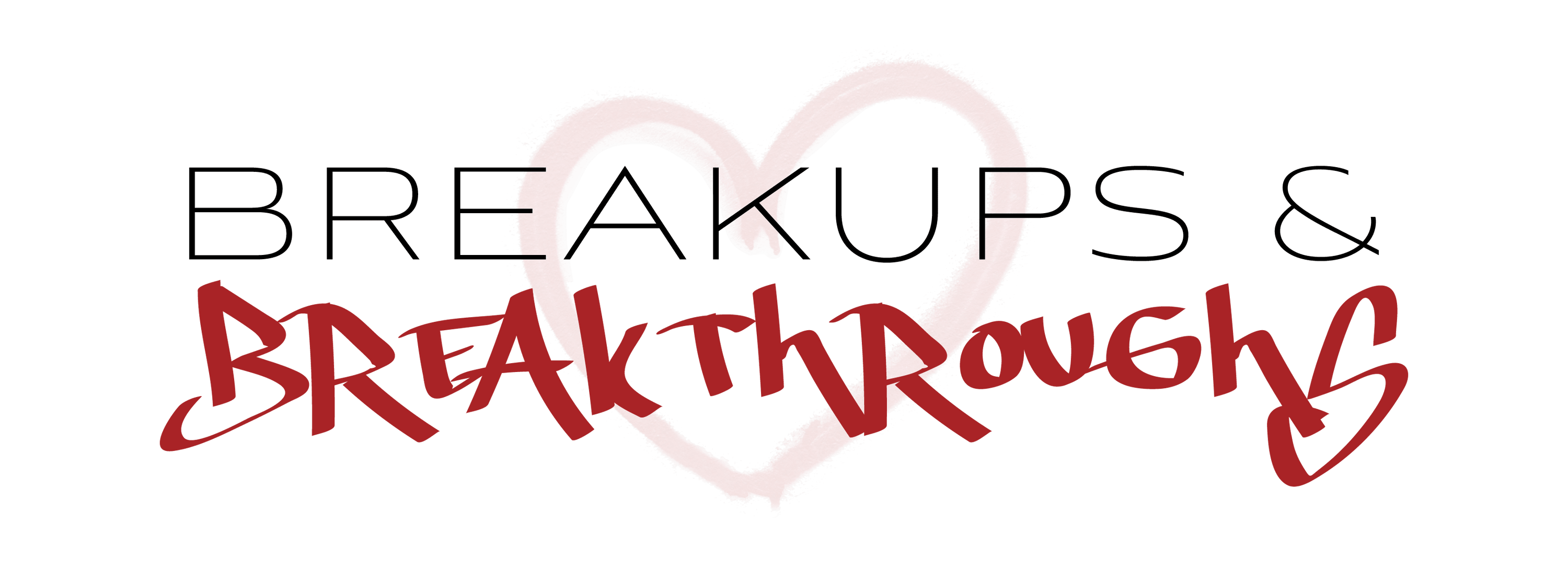Breakups can feel like the end of the world, but hear me out—they might actually be the best thing that ever happens to you. We’ve all been there, scrolling through old photos, wondering what went wrong, and questioning if we’ll ever find love again. But let’s flip the script here. Breakups, as painful as they may seem, are often a necessary chapter in our life story. They teach us who we are, what we deserve, and how to grow into the best version of ourselves. It’s not just about losing someone—it’s about finding yourself.
Now, before you roll your eyes and think I’m oversimplifying things, let me clarify: I’m not saying breakups are easy. They’re brutal. They hurt like hell. But the pain you feel today is temporary, and trust me, it’s leading you somewhere better. Every breakup has a lesson hidden within it, and once you unlock that lesson, you’ll start seeing the world in a whole new light.
So buckle up because we’re about to dive deep into why breakups are more than just heartache. We’ll explore everything from the emotional rollercoaster to the long-term benefits, backed by science, personal stories, and some good ol’ fashioned wisdom. By the end of this, you might even start looking at your ex with a little bit of gratitude. (Okay, maybe not *that* much gratitude.)
Table of Contents
- What Are Breakups, Really?
- Why Do Breakups Hurt So Much?
- The Biological Effects of Heartbreak
- The Emotional Stages of a Breakup
- Common Causes of Breakups
- How to Heal After a Breakup
- The Long-Term Benefits of Breakups
- Relationship Red Flags That Lead to Breakups
- How to Move On for Good
- Final Thoughts on Breakups
What Are Breakups, Really?
Let’s get one thing straight: breakups aren’t just about two people deciding to part ways. They’re emotional earthquakes that shake the foundation of your life. Whether it’s a mutual decision or a sudden breakup, the end of a relationship forces you to reevaluate who you are without that person by your side.
But here’s the thing—breakups don’t have to be all doom and gloom. In fact, they’re often a sign that something wasn’t quite right. Maybe the relationship wasn’t healthy, or maybe you were both growing in different directions. Whatever the reason, a breakup is an opportunity to press pause and reflect on what truly matters to you.
Types of Breakups
Not all breakups are created equal. Some are amicable and respectful, while others leave you feeling like you’ve been hit by a truck. Here are a few common types:
- Mutual Breakups: Both partners agree that it’s time to call it quits. These tend to be less painful but still emotionally draining.
- Unilateral Breakups: One partner initiates the breakup, leaving the other feeling blindsided and confused.
- Long-Distance Breakups: Distance can strain even the strongest relationships, leading to a breakup despite mutual feelings.
- Toxic Breakups: When a relationship is toxic, a breakup can feel like a breath of fresh air—but not without its challenges.
Why Do Breakups Hurt So Much?
Okay, so we’ve established that breakups are tough, but why do they hurt so damn much? It’s not just about missing someone—it’s about losing a part of yourself. When you’re in a relationship, you create a shared identity with your partner. You build routines, inside jokes, and memories together. When that relationship ends, it feels like losing a piece of yourself.
And let’s not forget the biology behind it all. Studies show that heartbreak activates the same areas of the brain as physical pain. Your brain literally perceives the loss of love as a form of injury, which is why it feels so excruciating.
Why Love Hurts
Here are a few reasons why love—and its absence—can hurt so deeply:
- Attachment: The longer you’re with someone, the stronger your attachment becomes. Losing that attachment can feel like losing a limb.
- Uncertainty: Breakups often come with a lot of uncertainty about the future, which can be terrifying.
- Self-Worth: It’s easy to question your self-worth after a breakup, especially if the relationship ended on bad terms.
The Biological Effects of Heartbreak
Did you know that heartbreak can actually affect your physical health? It’s true. When you go through a breakup, your body releases stress hormones like cortisol, which can weaken your immune system and make you more susceptible to illness. You might even experience symptoms like insomnia, loss of appetite, or fatigue.
But here’s the good news: your body is resilient. With time, these effects will fade, and you’ll start feeling like yourself again. In the meantime, taking care of your physical health can make a big difference in how you cope with the emotional pain.
How to Combat the Physical Effects
Here are a few tips for staying healthy during a breakup:
- Exercise regularly to boost endorphins.
- Eat a balanced diet to fuel your body.
- Practice mindfulness or meditation to reduce stress.
- Get plenty of sleep to help your body heal.
The Emotional Stages of a Breakup
Just like grief, breakups come with their own set of emotional stages. You might experience denial, anger, bargaining, depression, and finally, acceptance. These stages aren’t always linear, and you might find yourself bouncing back and forth between them. But understanding these stages can help you navigate the process more effectively.
Denial is often the first stage, where you refuse to accept that the relationship is over. This might involve replaying conversations in your head or holding onto hope that things will change. Eventually, though, you’ll move through the stages and reach acceptance, where you can finally start healing.
Coping with Each Stage
Here’s how to cope with each emotional stage:
- Denial: Allow yourself to process your feelings, but don’t get stuck in denial.
- Anger: Find healthy outlets for your anger, like journaling or talking to a friend.
- Bargaining: Remind yourself that the breakup happened for a reason, and it’s not worth trying to change it.
- Depression: Seek support from loved ones or a therapist if you’re struggling.
- Acceptance: Celebrate your progress and focus on the future.
Common Causes of Breakups
So why do relationships end in the first place? There are countless reasons, but some common causes include lack of communication, trust issues, mismatched values, and growing apart. Sometimes, relationships just run their course, and that’s okay. The important thing is to learn from the experience and move forward.
It’s also worth noting that not all breakups are the result of a bad relationship. Sometimes, even healthy relationships come to an end because circumstances change or people grow in different directions. Whatever the reason, it’s important to approach the breakup with compassion—for yourself and for your ex.
Signs a Breakup Might Be Coming
Here are a few warning signs that a breakup might be on the horizon:
- Constant arguments without resolution.
- Loss of intimacy or emotional connection.
- Feeling like you’re walking on eggshells around your partner.
- Spending more time apart than together.
How to Heal After a Breakup
Healing after a breakup takes time, effort, and patience. It’s not something you can rush, but there are steps you can take to make the process easier. First and foremost, be kind to yourself. Allow yourself to feel the pain, but don’t let it consume you. Focus on self-care, surround yourself with supportive people, and set new goals for yourself.
Journaling can be a powerful tool for processing your emotions. Writing down your thoughts and feelings can help you gain clarity and perspective. You might also consider therapy or counseling if you’re struggling to cope with the breakup on your own.
Self-Care Tips for Healing
Here are a few self-care tips to help you heal:
- Take up a new hobby or activity.
- Connect with friends and family.
- Practice gratitude by focusing on the positive aspects of your life.
- Set boundaries with your ex if necessary.
The Long-Term Benefits of Breakups
Believe it or not, breakups can have long-term benefits. They can teach you valuable lessons about relationships, help you grow as a person, and even lead you to a healthier, more fulfilling partnership down the road. Many people report feeling stronger and more self-assured after a breakup because they’ve learned to rely on themselves and trust their instincts.
Breakups can also help you clarify what you want in a partner and in a relationship. You might realize that certain qualities or behaviors are deal-breakers for you, which will save you from making the same mistakes in the future.
Lessons Learned from Breakups
Here are a few lessons you might learn from a breakup:
- The importance of communication in relationships.
- How to set healthy boundaries.
- What you truly need in a partner.
- That love doesn’t always have to look like it does in the movies.
Relationship Red Flags That Lead to Breakups
Sometimes, breakups are the result of red flags that were ignored or overlooked. These warning signs might include controlling behavior, lack of trust, emotional manipulation, or physical abuse. If you notice any of these red flags in your relationship, it’s important to address them before they escalate.
Of course, not all red flags are deal-breakers. Some issues can be worked through with communication and effort. But if you feel unsafe or unhappy in the relationship, it might be time to consider ending it.
Common Red Flags to Watch For
Here are a few red flags to watch for in a relationship:
- Disrespecting your boundaries.
- Constant criticism or belittling.
- Refusing to compromise or communicate.
- Controlling or manipulative behavior.
How to Move On for Good
Moving on after a breakup isn’t easy, but it’s possible. Start by focusing on yourself and your future. Set new goals, explore new interests, and surround yourself with positive influences. It’s also important to let go of any lingering attachment to your ex. This might mean deleting their number, unfollowing them on social media, or simply giving yourself permission to move on.
Remember, moving on doesn’t mean forgetting about the relationship. It means accepting that it’s over and choosing to focus on what’s ahead rather than what’s behind.
Final Tips for Moving On
Here are a few final tips for moving on:
- Give yourself time to heal.
- Stay busy with activities that make you happy.
- Lean on your support system when you need it.
- Trust that better things are waiting for you.
Final Thoughts on Breakups
Breakups are hard, but they’re also an opportunity for growth and self-discovery. They teach us who we are, what we want, and how to build healthier relationships in the future. So

